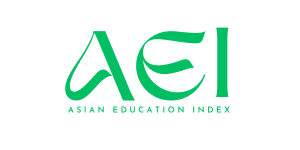Children From Multilingual Families: A Global Perspective With Insights From Uzbekistan.
Keywords:
multilingualism, speech development disordersAbstract
As globalization accelerates, an increasing number of children grow up in multilingual environments, acquiring two or more languages simultaneously. While multilingualism enhances cognitive flexibility and adaptability, it may also pose challenges for speech development. Some multilingual children experience articulation difficulties, expressive language delays, or phonetic interference, raising concerns about the impact of early exposure to multiple languages on speech acquisition. This study examines the most common speech disorders in multilingual children based on the ICD-10 (International classification of diseases-10 Publication 2023 ) and explores findings from longitudinal studies conducted in Canada, the U.S., Singapore, Switzerland, and Uzbekistan. Additionally, it evaluates global intervention strategies used to support speech development in multilingual children. The research highlights the need for multilingualspecific speech assessments, particularly in Uzbekistan, where early English and Russian language instruction is growing. Findings suggest that while multilingual children may experience temporary speech delays, these are often due to language interference rather than developmental disorders. The study emphasizes the importance of tailored speech therapy approaches to prevent misdiagnosis and ensure optimal language development.
References
Bialystok, E. (2018).Bilingualism and cognitive development. Annual Review of Linguistics,
Explores cognitive advantages and challenges in bilingual children.
Code-mixing in bilingual children: A study from Singapore. International Journal of Language &
Communication Disorders. Investigates speech delays and cognitive flexibility in multilingual
children. Meisel, J. M. (2019). Early bilingualism and language development. Bilingualism: Language
and Cognitive.
Examines articulation and grammatical errors in multilingual children in Switzerland.
Parades, J., Genesee, F., & Cargo, M. (2021). Dual Language Development and Disorders: A
Handbook on Bilingualism and Second Language Learning. Paul H. Brookes Publishing.
Comprehensive book on bilingual speech development and disorders.
Peña, E. D., & Bed ore, L. M. (2020). Language impairment in bilingual children: Misdiagnosis and
assessment challenges. Journal of Speech, Language, and Hearing Research,
Discusses the challenges of diagnosing speech disorders in bilingual children.
Tashkent State Pedagogical University. (2023). Speech Development in Uzbek-Russian-English
Trilingual Children: Challenges and Interventions. Uzbekistan Journal of Pedagogy and Psychology,
Research on how Uzbek children learning English and Russian face articulation difficulties.
Uzbekistan Ministry of Preschool Education. (2023). National Policy on Early Foreign Language
Instruction. Government Report on Education Reforms.
Bilingualism: Language and Cognition (Impact Factor: 2.8)
Journal of Speech, Language, and Hearing Research (Impact Factor: 3.1)
International Journal of Bilingual Education and Bilingualism.
Karimova, M. (2024). Addressing Common Challenges in teaching English as a foreign language:
Strategies for success. Nordic_Press, 3(0003).
Downloads
Published
Issue
Section
License

This work is licensed under a Creative Commons Attribution-NonCommercial 4.0 International License.
User Rights
Under the Creative Commons Attribution-NonCommercial 4.0 International (CC-BY-NC), the author (s) and users are free to share (copy, distribute and transmit the contribution).
Rights of Authors
Authors retain the following rights:
1. Copyright and other proprietary rights relating to the article, such as patent rights,
2. the right to use the substance of the article in future works, including lectures and books,
3. the right to reproduce the article for own purposes, provided the copies are not offered for sale,
4. the right to self-archive the article.














